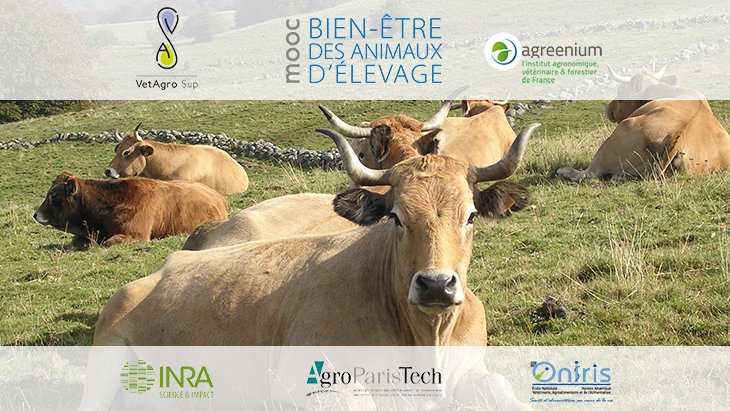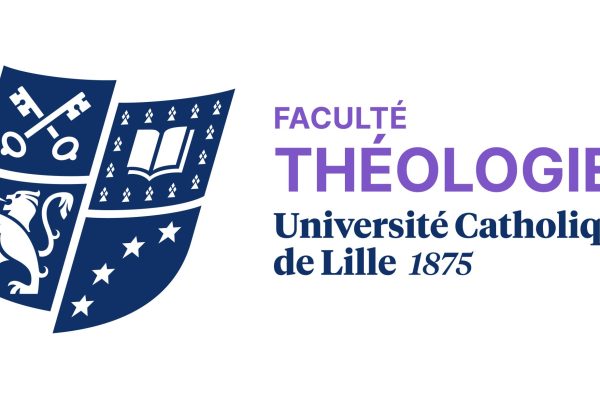Document type : training announcement on the FUN MOOC platform
Authors: Luc Mounier, Raphaël Guatteo, Pierre Mormède, Marie-Christine Salaün, Alain Boissy, Christine Duvaux-Ponter, Alice de Boyer des Roches, Amandine Rave
Training begins: 15/12/2020; training ends: 16/02/2021
Registration open until 06/02/2021
Preview: Animal welfare is now a major concern for the public. The need to take account of it and to improve it are increasingly important for various stakeholders:
- consumers whose purchasing decisions are increasingly influenced by the conditions in which animals are reared,
- animal protection associations who have long been working to improve animal welfare,
- distributors or companies engaged in improvement or labelling initiatives,
- teachers or trainers who have to integrate this concept into their training courses,
- public authorities, who have to take these expectations into account in policy making,
- and of course the breeders, farmers, veterinarians, engineers and technicians who are in daily contact with animals and are most closely involved in their welfare. But what do we mean by animal welfare?
What does animal welfare actually involve? Is it the same for all animals? What influences it? Is the welfare of an outdoor animal always better than the welfare of an indoor animal? Is what we do for an animal enough to make it feel good?
Can animal welfare really be assessed objectively and scientifically, or is it purely subjective?
Last, can it really be improved and how? - and what are the benefits for both animals and humans?
It is important to consider all these questions in discussing animal welfare, especially that of farm animals.
The purpose of the MOOC "le bien-être des animaux d’élevage" training on farmed-animal welfare is to provide answers to these questions. It includes three modules:
- an "understanding" module that lays the theoretical foundations,
- an "assessment" module that suggests tools for use on the farm,
- an "improvement" module that sets out some improvement measures.
MOOC was developed by an educational team of teacher-researchers, researchers and veterinarians specialising in farm animal welfare. This fourth MOOC session focuses on farm animals and builds on the classes from the earlier sessions. You can also be awarded an achievement certificate from the MOOC to certify skills acquisition.






